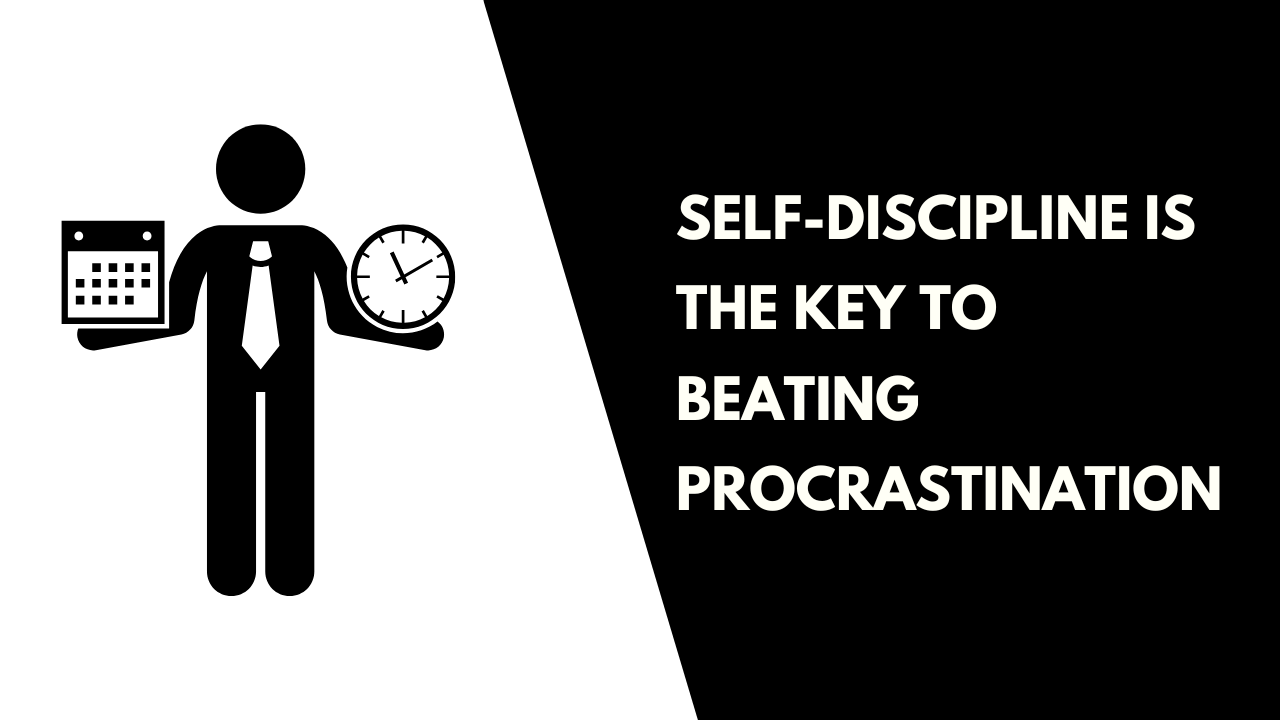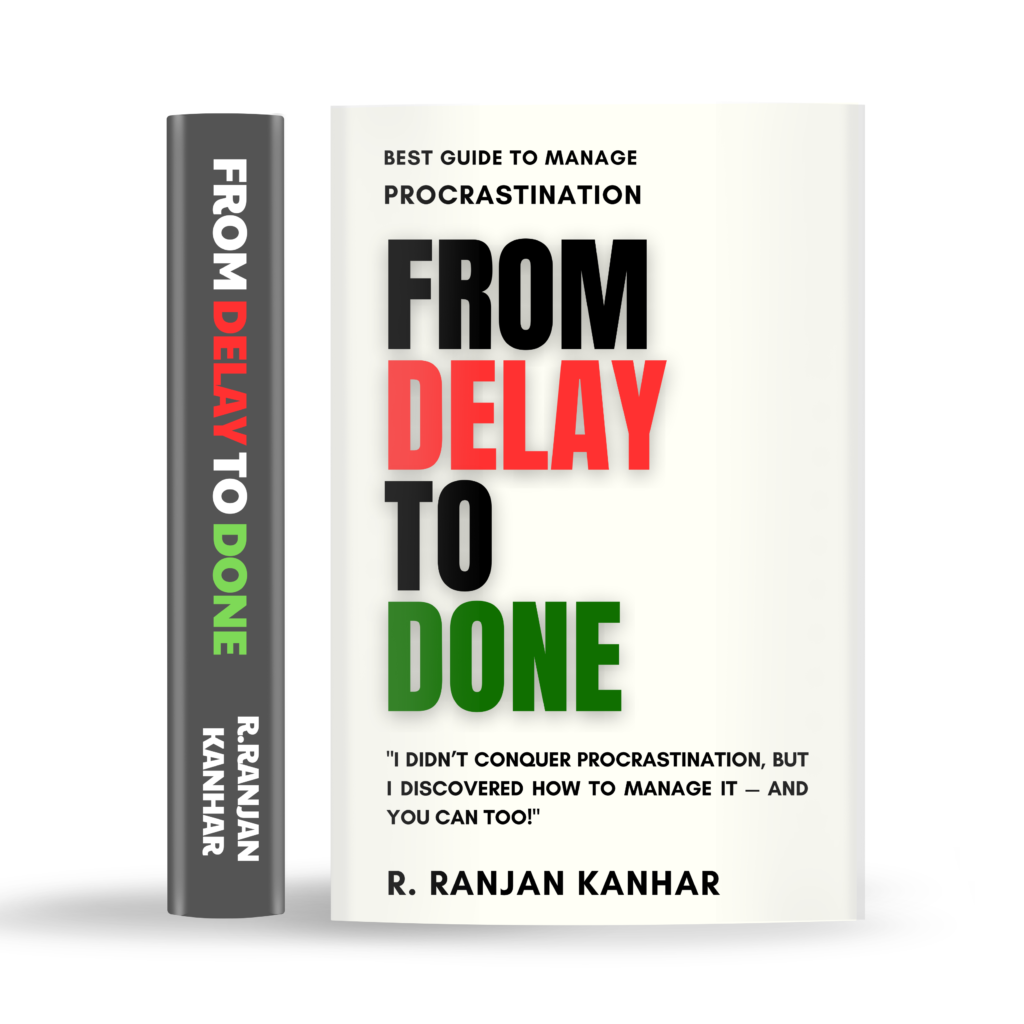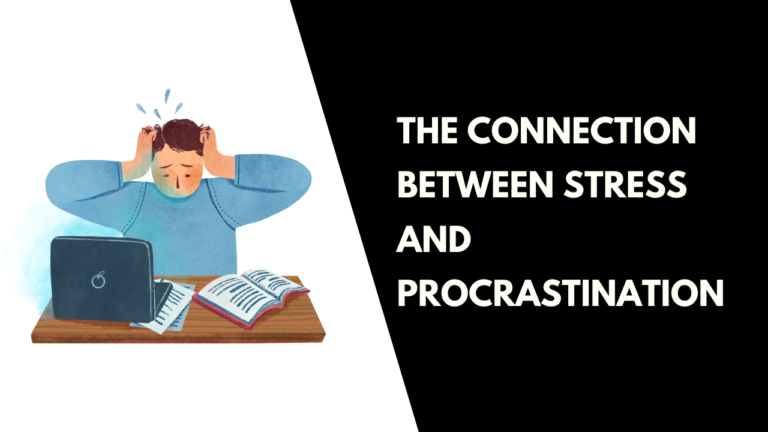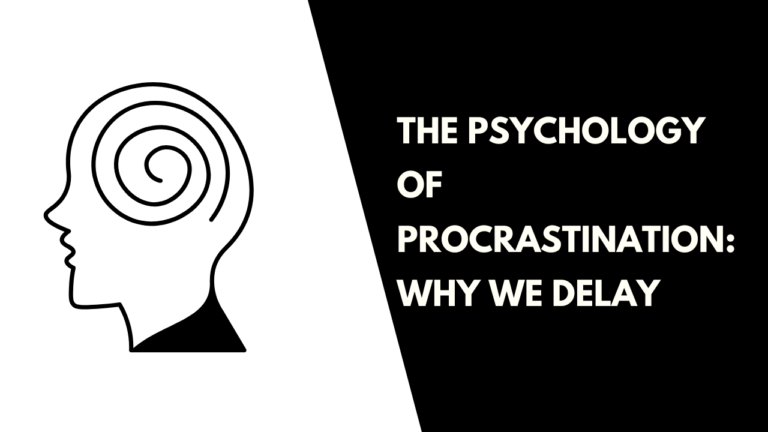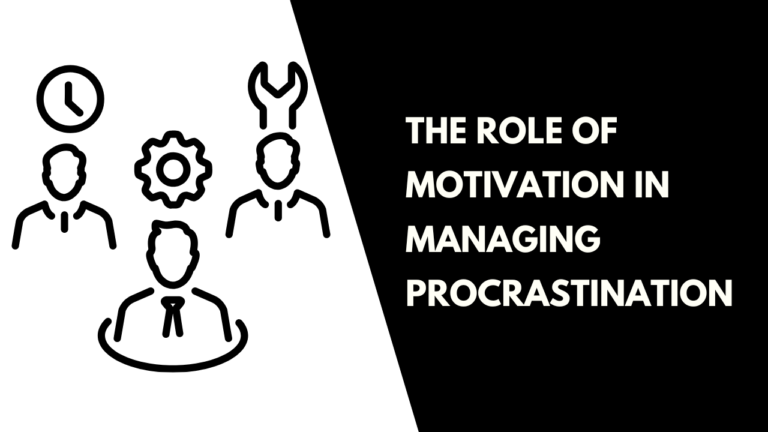Why Self-Discipline is the Key to Beating Procrastination
Introduction – Self-Discipline is the Key to Beating Procrastination
Have you ever found yourself putting off important tasks, waiting for the “perfect” moment to start? You promise yourself that tomorrow will be different, but when tomorrow arrives, the cycle repeats. If this sounds familiar, you’re not alone. Many of us struggle with procrastination, and while motivation comes and goes, one thing remains constant: self-discipline is the key to beating procrastination.
Table of Contents
ToggleUnlike motivation, which is fleeting, self-discipline is a habit you can cultivate to stop procrastination and manage procrastination effectively. In this blog, we’ll explore why self-discipline is the foundation of overcoming procrastination, provide actionable strategies, and share real-life examples to help you regain control of your time.
Why Do We Procrastinate?
Before we dive into self-discipline, let’s first understand why we procrastinate. Procrastination is not just about being lazy—it’s a complex psychological issue tied to emotions, fear, and habits. Here are some common reasons why we delay tasks:
- Fear of Failure – We avoid tasks because we are afraid of not doing them perfectly.
- Lack of Motivation – Waiting for the “right mood” to start.
- Overwhelming Tasks – Large projects feel daunting, leading to avoidance.
- Distractions and Instant Gratification – Social media, TV, or even small, less important tasks take priority over important work.
- Perfectionism – Believing that if it can’t be done perfectly, it shouldn’t be done at all.
While these reasons might seem valid in the moment, they prevent us from achieving our goals. This is where self-discipline is the key to beating procrastination.
Self-Discipline vs. Motivation: The Key Difference
Many people believe they need motivation to start working. They wait for an external push, an inspiring speech, or the perfect environment. However, the truth is, motivation is unreliable. It fades quickly, leaving us stuck in the same cycle of procrastination.
Self-discipline, on the other hand, is the ability to do what needs to be done—even when you don’t feel like doing it. It’s about training your mind to follow through on commitments, regardless of emotions or distractions.
Real-Life Example:
Think about a professional athlete. They don’t wake up every day feeling excited to train, but they do it anyway because they are committed to their goals. That’s self-discipline in action. Similarly, if you apply this mindset to your work, studies, or personal goals, you can stop procrastination and take control of your time.
How to Build Self-Discipline and Stop Procrastination
1. Start Small and Be Consistent
Self-discipline isn’t developed overnight. Instead of making drastic changes, start with small, manageable habits.
🔹 Example: If you struggle to focus on work, start with just 15 minutes of focused work without distractions. Gradually increase the time as your discipline strengthens.
2. Create a Structured Routine
Having a daily routine removes decision fatigue and makes it easier to manage procrastination.
🔹 Example: If you find yourself constantly delaying workouts, set a fixed time every morning for exercise. Treat it as a non-negotiable appointment.
3. Use the “2-Minute Rule”
If a task feels overwhelming, break it down into a 2-minute action to get started. The hardest part of any task is beginning it.
🔹 Example: If you’re procrastinating on writing a report, start by simply opening the document and typing the first sentence. This small action reduces resistance and builds momentum.
4. Remove Distractions and Temptations
Your environment plays a huge role in discipline. Make it easier to focus by eliminating distractions.
🔹 Example: If social media is your biggest distraction, use website blockers like Freedom or Cold Turkey during work hours to stop procrastination.
5. Set Clear, Realistic Goals
One reason people procrastinate is because their goals are vague. Clear, specific goals provide direction and purpose.
🔹 Example: Instead of saying, “I need to study more,” set a goal like, “I will study one chapter of my textbook for 45 minutes at 6 PM.”
6. Hold Yourself Accountable
Accountability can make a huge difference in your ability to manage procrastination.
🔹 Example: Tell a friend or colleague about your goal. Knowing that someone is expecting an update can push you to stay on track.
7. Use the “5-Second Rule”
Mel Robbins’ 5-Second Rule suggests that if you have an instinct to act on a goal, count down 5-4-3-2-1 and take immediate action.
🔹 Example: If you need to start a difficult task, don’t overthink it—just count down and begin. This prevents your brain from talking you out of it.
8. Reward Yourself for Progress
Self-discipline doesn’t mean depriving yourself of rewards. Celebrate small wins to reinforce positive behavior.
🔹 Example: If you complete a challenging project, treat yourself to your favorite coffee or an episode of your favorite show.
9. Develop a Strong “Why”
When you have a compelling reason to complete a task, it becomes easier to stay disciplined.
🔹 Example: If you’re procrastinating on learning a new skill, remind yourself how it will help your career and financial growth.
10. Learn to Say “No”
Many people procrastinate because they overcommit to unimportant tasks. Protect your time by learning to say no to distractions.
🔹 Example: If a colleague asks for a favor that isn’t urgent, politely decline and prioritize your own tasks first.
Real-Life Story: How I Used Self-Discipline to Stop Procrastination
A few years ago, I struggled with procrastination at work. I would delay important reports until the last minute, leading to unnecessary stress. I kept telling myself I’d do better next time, but the cycle continued.
One day, I decided to take control. I implemented the 15-minute focus rule, removed distractions from my workspace, and followed a strict morning routine. Within weeks, I noticed a shift. The tasks I once dreaded became easier, and my productivity soared.
The key? Self-discipline. It wasn’t easy, but by making small changes every day, I managed to stop procrastination and build better work habits.
Final Thoughts: Self-Discipline is the Key to Beating Procrastination
If you’re tired of feeling stuck in a cycle of procrastination, remember this: self-discipline is the key to beating procrastination. It’s not about waiting for motivation; it’s about taking consistent action, even when you don’t feel like it.
By starting small, creating routines, removing distractions, and setting clear goals, you can stop procrastination and take charge of your life. The journey isn’t always easy, but the rewards—less stress, more productivity, and greater success—are well worth the effort.
So, what’s the first step you’ll take today to manage procrastination? Let me know in the comments!
“Stop postponing your dreams! From Delay to Done is your ultimate guide to conquering procrastination. Grab your copy today on Amazon!
